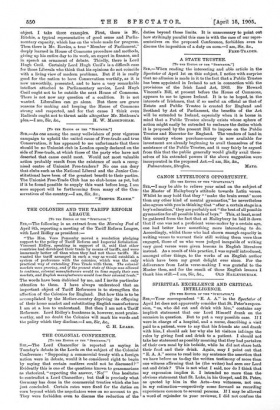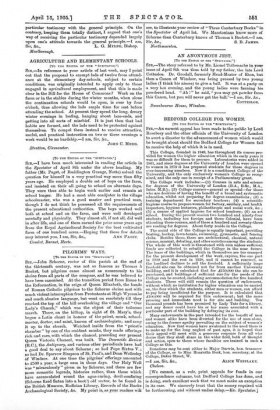SPIRITUAL EXCELLENCE AND CRITICAL INTELLIGENCE.
(TO TIM EDITOR Or TUE 'SPECTATOR:1
SIR,—Your correspondent " E. A. A." in the Spectator of April 1st does not apparently consider that St. Peter's expres- sion, " us, who did eat and drink with him," contains any implicit statement that our Lord Himself drank on the occasion in question. But to put a very possible case. If I were in charge of a hospital, and a nurse, describing a visit paid to a patient, were to say that his friends ate and drank with him, I should ask her why she let visitors infringe the rules by giving food and drink to a patient. I should not take her statement as possibly meaning that they had partaken of their own meal by his bedside, while he did not share both their food and their drink. Again, may I point out that "E. A. A." seems to read into my sentence the assertion that we have before us to-day the written testimony of more than one witness affirming that he (the writer) had seen our Lord eat and drink ? This is not what I said, nor do I think that my expression implies it. I intended no more than the obvious statement that St. Luke, in his Gospel, and St. Peter, as quoted by him in the Acts—two witnesses, not one, in my estimation—respectively come forward as recording experiences common to several persons. If I may be allowed a word of rejoinder to your reviewer, I did not confuse the
particular testimony with the general principle. On the contrary, keeping them totally distinct, I argued that one's way of receiving the particular testimony depended largely upon one's attitude towards the general principle.—I am,











































 Previous page
Previous page